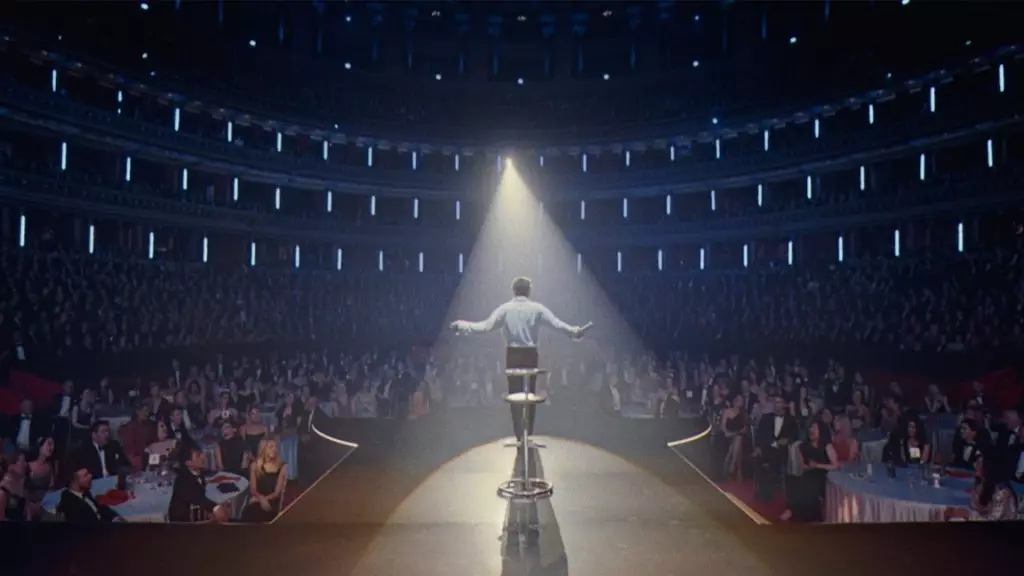In a world increasingly captivated by the glitz and glamor of fame, the tragic death of Liam Payne has struck a profound chord, stirring deep reflections among celebrities and fans alike. Robbie Williams, a fellow artist who experienced the trials of stardom from a young age, expressed his grief openly following the loss of the former One Direction member. As Williams shared his thoughts with Deadline, it became evident that his sadness was not solely rooted in personal loss but also in a greater societal context that continues to ignore the perils of fame.
A Shared Journey Through Fame
Robbie Williams rose to prominence as a member of Take That, facing the challenges of sudden fame at the tender age of 16—a path that mirrored Liam Payne’s own journey. When Payne tragically fell from a hotel balcony in Buenos Aires at the age of 31, the shockwave resonated throughout the music community. Williams described wrestling with feelings of depression and sadness, underscoring how such tragedies force society to confront the darker side of celebrity culture.
In his poignant remarks, Williams highlighted how the burdens associated with fame can often remain unaddressed. “If it isn’t me, then who?” he questioned, directly pointing to the collective responsibility of the industry and society to acknowledge and support artists grappling with the intense pressures of stardom. Williams’s reflections bring forward a crucial debate: Are we as a society complicit in perpetuating the unsustainable demands placed on public figures?
Williams’s sentiments echo a larger discourse about the capitalist model of celebrity culture that thrives on public consumption while neglecting its human costs. The industry’s relentless pursuit of notoriety often overshadows the personal struggles that artists face behind closed doors. Williams believes that the conversation should not be solely about the individuals stricken with tragedy but rather about the system that enables it.
In this light, he endorses the perspective shared by singer-songwriter Chappell Roan, who has bravely criticized the entertainment industry for its exploitation of artists. Williams noted her remarkable pushback against these prevalent issues, recognizing the need for a change in how celebrity is perceived and treated. He expressed a yearning to see a stronger movement for change that would pave the way for artists to speak out without fear of being branded as “ungrateful.”
Williams’s call to action shines a light on what he perceives as a “human problem” rather than a fame-specific issue. The pressures that celebrities navigate—intensified by social media and public scrutiny—are reflective of broad societal challenges. Addiction, mental health struggles, and the sense of isolation, while exacerbated in the limelight, are not exclusive to celebrities. They are prevalent across various layers of society.
To truly honor the memory of those who have tragically passed, the conversation must shift towards understanding the systemic issues that contribute to their suffering. Williams’s determination to use his platform for advocacy reflects a deeper understanding of his own experiences and the lessons learned from them.
A Personal Connection to Loss
In a heartfelt Instagram tribute, Williams grappled with the emotions swirling in the wake of Payne’s passing. His words resonate deeply, illustrating a sense of confusion and disbelief—a sentiment likely shared among many. Putting himself in the shoes of those who mourn, Williams reflects on the shared camaraderie of artists navigating the highs and lows of fame, making his grief one that resonates universally.
This tragedy serves as a harbinger for change—a call for not just the music industry but for everyone to recognize and address the inherent vulnerabilities present in the pursuit of fame. Amid the loss and heartache, there lies an opportunity for reform, elevating the narratives surrounding mental health, addiction, and the struggles of public figures who often feel isolated in their pain.
Robbie Williams’s response to Liam Payne’s death transcends personal tragedy to alert society to the imperative need for compassion and systemic reform. It is a clarion call for collective reflection on the burdens of fame, challenging us all to foster a more understanding and supportive environment for those navigating the complexities of celebrity life.
